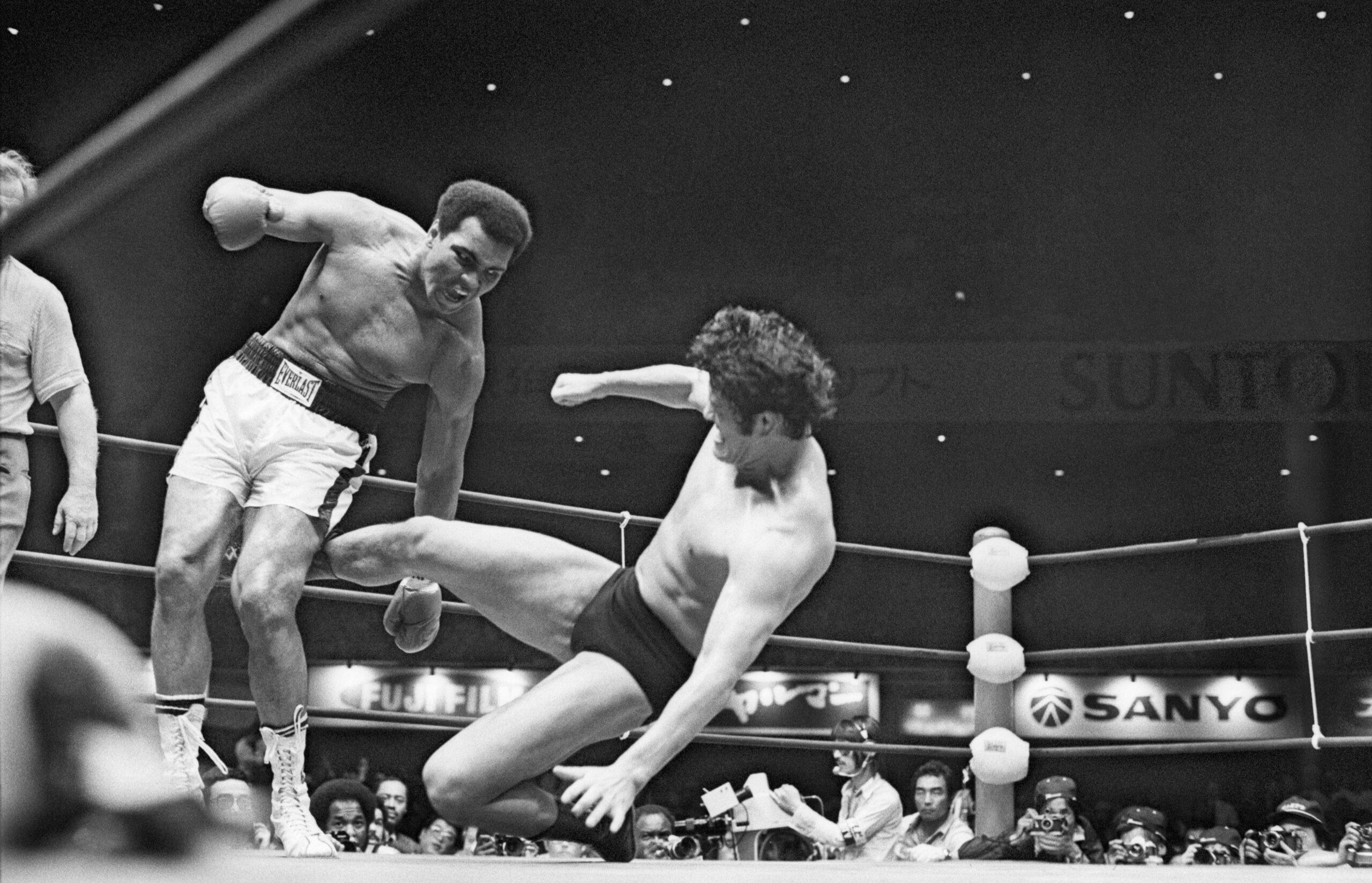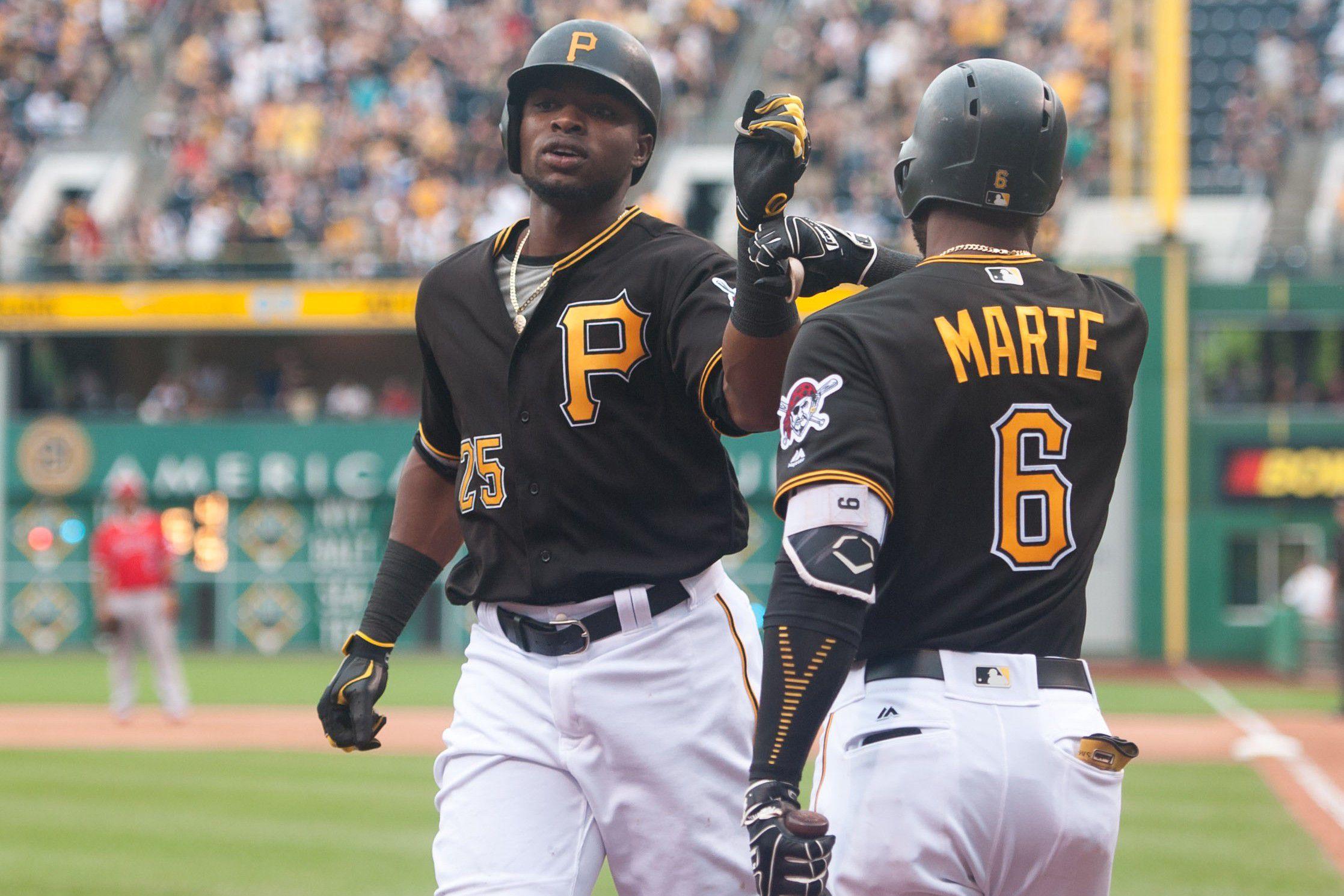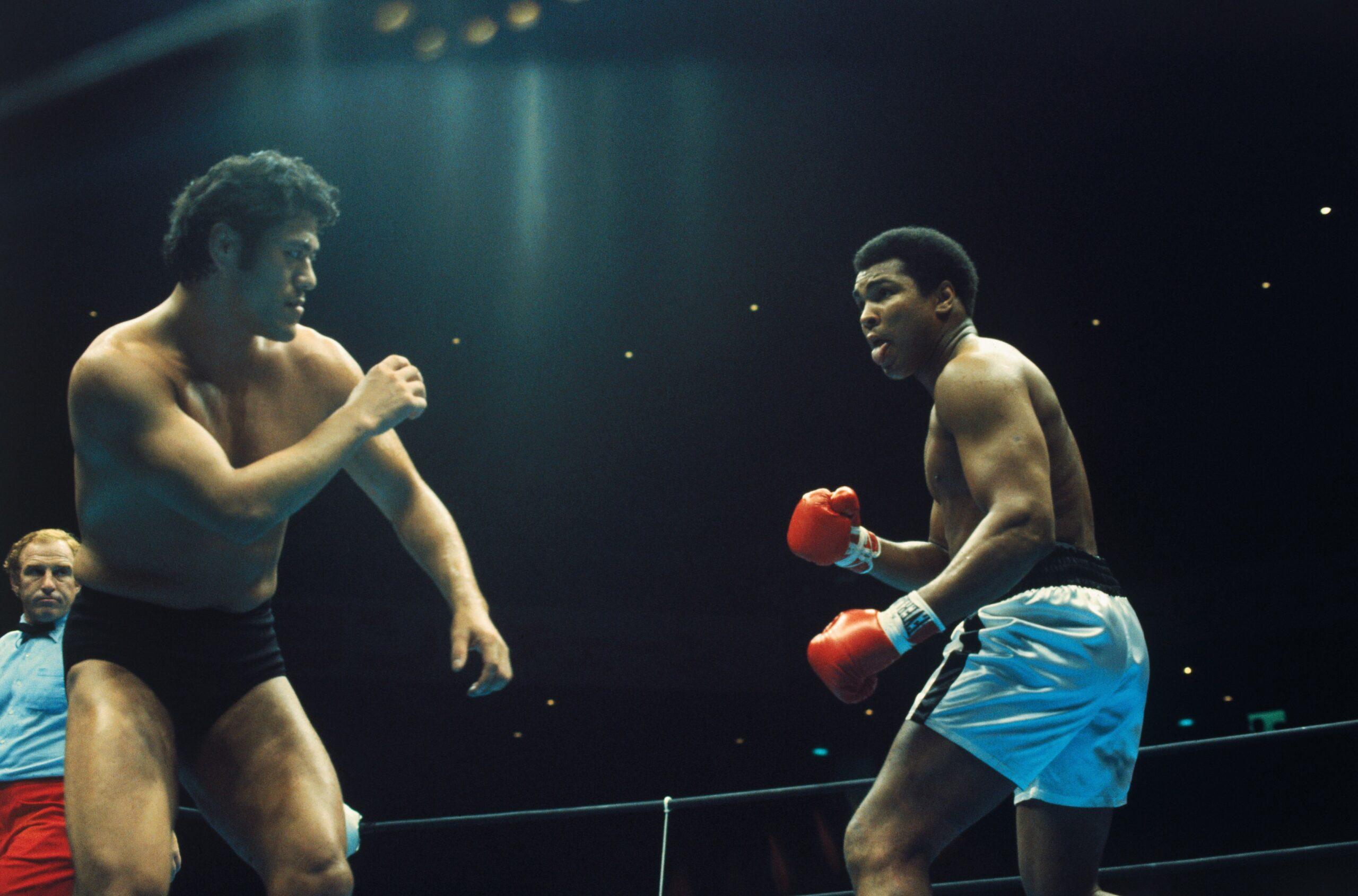Judged even on the terms of sports entertainment, 1985’s WrestleMania 1 was much more a spectacle than a competition. The main event featured the team of Hulk Hogan and Mr. T — whose story line friendship dated to their respective work in Rocky III — against the heel duo of "Rowdy" Roddy Piper and "Mr. Wonderful" Paul Orndorff. But the combatants weren’t the entire extravaganza: Recently fired and soon-to-be-rehired Yankees manager Billy Martin was the guest ring announcer, Liberace (accompanied to the ring by the Rockettes) was the guest timekeeper, and the special guest referee was none other than Muhammad Ali, who had retired from boxing four years prior.
During a particularly calamitous moment in the match, Ali intervened and socked Piper in an effort to bring the chaos under control. It’s one of the iconic scenes in WWE history, but it was also a symbolic convergence. Ali — who died on Friday at 74 — had already pulled pro wrestling into the boxing ring many years before, and now wrestling was returning the favor.

Ali, then Cassius Clay, was 19 when he first set eyes — and ears — on Gorgeous George. Both of them were at a Las Vegas radio station to promote upcoming fights — Clay against Duke Sabedong and George against Freddie Blassie, who would later become Ali’s manager in Japan. While Clay waited to do a spot for his fight, he listened to George cut a full-on heel promo on Blassie. As George biographer John Capouya put it in Sports Illustrated:
Since every legendary figure worth his salt has at least two creation myths, here’s what Randy Roberts and Johnny Smith wrote in their book Blood Brothers: The Fatal Friendship Between Muhammad Ali and Malcolm X:
Less than three years later, Ali was taunting Sonny Liston into a lather with startlingly familiar guff: "If Sonny Liston whups me, I’ll kiss his feet in the ring, crawl out of the ring on my knees, tell him he’s the greatest, and catch the next jet out of the country."

On Saturday, June 26, 1976, Ali, the reigning WBC/WBA heavyweight champion, stood in the ring in the Nippon Bidokan arena in Tokyo. Normally reverent, this particular crowd wasn’t happy. They threw trash into the ring and chanted, "Money back! Money back!" at two of international sport’s greatest icons: Ali and Antonio Inoki, the founder and star of New Japan Pro Wrestling. Despite the star power, it was a scene out of a modern American indie wrestling show. The crowd had just seen a match that was realer than anyone expected — especially Ali.

The story goes that Ali had met Ichiro Hatta, president of the Japanese Amateur Wrestling Association, and flirted in his usual way: "Isn’t there any Oriental fighter who will challenge me? I’ll give him one million dollars if he wins." The Japanese press ate it up, and Inoki’s backers put up a $6.1 million purse for Ali to make "the Martial Arts World Championship Fight" happen. (Ali’s previous fight, against Richard Dunn, had nearly been derailed over a $225,000 shortfall in Ali’s purse.) For Inoki, the bout was part of a campaign to establish the legitimacy of wrestling; for Ali, the monetary motivation wasn’t just in the fine print. As a broadcaster put it at the time, "It’s money that induces Muhammad Ali to fight a Japanese wrestler."
When he agreed to the fight, Ali thought it was going to be a "worked" match — a fake, pro-wrestling-style show. As to why it became real, the stories conflict: Some say Ali was upset that he was booked to lose the fake match and decided to fight for real instead, while Inoki’s confidantes say that he had planned on a real fight all along. Whatever the case, when the match finally began, it was a real fight, but the rules were so heavy-handed that little fighting could be done. Inoki couldn’t throw or grapple, and he was allowed to kick only from a kneeling position. Meanwhile, Ali was in light boxing gloves, powerless to bring Inoki to his feet. He made use of the ropes to break up bad situations, but those were rare. The majority of the 15 rounds consisted of Ali circling a prone Inoki, who steadily threw kicks at Ali’s legs. It looked ridiculous:
Of course, what really mattered was the hype. When they had a lunch together at the Foreign Correspondents Club of Japan before the fight, Ali walked in alongside his "manager," Blassie. Ali credited Blassie with his exuberant personality, but his role on this trip was more than just ceremonial. Blassie had wrestled extensively in Japan and was well versed in the sport’s internal politics and the country’s customs.
As they entered the prefight press conference, Ali yelled, "No monster is going to beat the greatest fighter of all time!" In response, Inoki presented Ali with a crutch that he would presumably need to use to get back to the locker room after the fight.
When a reporter asked Ali if all of the spectacle surrounding the match was demeaning to the heavyweight champion, he said: "I’m so far in my own class that I have to look for other things. This is what I’m involved in — publicity, controversy, acting just to accumulate, draw crowds. Why am I me? Because I do things that are ridiculous. Why is Evel Knievel what he is? Because he does things that are ridiculous."

Back in the states, Vincent J. McMahon, founder of the World Wide Wrestling Federation and father of WWE’s Vincent K., showed the card on closed-circuit TV at Shea Stadium. He also provided a live opening act: Andre the Giant vs. Chuck Wepner, who had lost to Ali the year before.
The connective tissue is plentiful: Wepner’s bout with Ali had inspired Rocky, which would come out just over five months after the Ali-Inoki fight. And Andre-Wepner would inspire a sequence in Rocky III, when Hulk Hogan — playing "Thunderlips" — went toe-to-toe with the champ. (To bring it full circle: Inoki would fight Wepner in another boxer-wrestler exhibition in October 1977.) Hogan’s role in Rocky III famously got him expelled from the WWF, as Vince Sr. thought that wrestlers playing wrestlers on the big screen would put the farce of the sport on blast.
Two years after Rocky III was filmed, Vince Jr. had taken over. He saw the potential for using Hogan’s Rocky appearance to grow crowds, and he made bringing Hogan back priority no. 1.

Much has been made about McMahon taking a legitimate-seeming, territorial wrestling business and transforming it into something more and something less at the same time: an internationally successful but admittedly fake enterprise.
However, Ali deserves some credit, too. His self-promotional abilities, all of which were learned from pro-wrestling figures, then opened the door for pro wrestling to enter the mainstream. In fact, you can see the era changing when Ali throws his first whiff of a jab at Piper, who recoils out of the ring. The man who swallowed pro wrestling up into real sports was then swallowed up into the farce of pro wrestling.

By the time the inaugural WrestleMania rolled around, wrestling was being covered by the Arts section of The New York Times. Yet serious sports journalists had already decried the Inoki fight as the low point of Ali’s career. In the Times, Dave Anderson wrote a column headlined "The ‘Farcial’ Arts" that quotes "Cinderella Man" James J. Braddock on Ali’s integrity: "He’s good, but he don’t have the dignity a champion should have."
Considering all the deserved laurels that Ali’s passing received, it’s funny to consider questions about his dignity today. In retrospect, the fussing said less about Ali than it did about his contemporaries’ inability to understand the transformative power of showmanship. Ali knew what bluster and self-promotion could accomplish as soon as he saw Gorgeous George at that Las Vegas radio station.
It was the art of hype, the art of the work. Sports matter because we don’t know how the game or the match will end, and the introduction of the wrestling promo into the world of real sports just underscored the marketability of uncertainty.
"What’s going to happen if Ali gets his arm twisted? What will happen if he throws Ali on his back?" a self-referencing Ali mused in the lead-up to the Inoki fight. "What will happen if he kicks Ali? Man wants to understand what he cannot understand."


